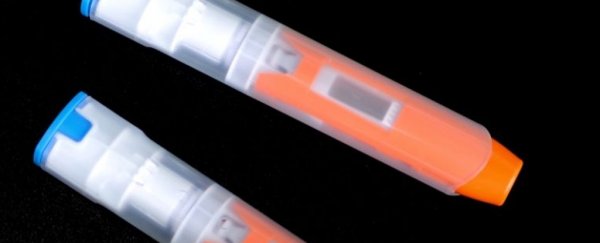The UK's Regulatory Agency is advising people with a history of "significant" allergic reactions to avoid Pfizer's coronavirus vaccine, after two National Health Service members developed severe allergic reactions to it on Tuesday (December 8).
"As is common with new vaccines the MHRA (Medicines and Healthcare products Regulatory Agency) have advised on a precautionary basis that people with a significant history of allergic reactions do not receive this vaccination after two people with a history of significant allergic reactions responded adversely yesterday," Stephen Powis, the national medical director for England's National Health Service said in a statement on Wednesday (December 9).
The MHRA will investigate further and Pfizer and BioNTech will support their investigation, according to Reuters.
"Any person with a history of a significant allergic reaction to a vaccine, medicine or food (such as previous history of anaphylactoid reaction, or those who have been advised to carry an adrenaline autoinjector) should not receive the Pfizer/BioNtech vaccine," according to the new MHRA guidance. The guidance also notes that "resuscitation facilities" should be available for all vaccinations at all times.
Pfizer previously said that people with a history of severe adverse allergic reactions weren't included in late stage trials, according to Reuters.
Indeed, only 0.63 percent of people who were given the vaccine and 0.51 percent of people who were given the placebo reported allergic reactions - some of which were mild - in the trials, according to the first Food and Drug Administration (FDA) review of the vaccine data that was published on Tuesday.
"Allergic reaction occurs with quite a number of vaccines, and perhaps even more frequently with drugs. So it is not unexpected," Stephen Evans, a professor of pharmacoepidemiology at the London School of Hygiene and Tropical Medicine said in remarks to journalists published by Britain's Science Media Center.
"What would be wise, as the MHRA have already advised, would be for anyone who has known severe allergic reaction such that they need to carry an EpiPen, to delay having a vaccination until the reason for the allergic reaction has been clarified," he said.
For the general population this does not mean that they would need to be anxious about receiving the vaccination, he added. "One has to remember that even things like marmite [a quintessential British food spread] can cause unexpected severe allergic reactions."
The very first doses of the Pfizer-BioNTech vaccine were administered to several thousand people in the UK on Tuesday, according to the BBC.
This article was originally published by Live Science. Read the original article here.
